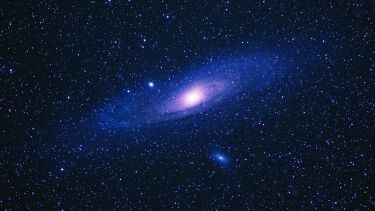Professor Prof Vitaly Kudryavtsev and Dr Rhiannon Jones ( School of Mathematical and Physical Sciences) have been awarded in total over £1 million from the Science and Technology Facilities Council (STFC) for their work on the Deep Underground Neutrino Experiment (DUNE) project. The project will support critical research into the fundamental properties of neutrinos - the most abundant particles that have mass in the Universe - aiming to shed light on the structure and evolution of the Universe.
DUNE is an ambitious international project with a total investment exceeding $3 billion. The experiment involves sending a beam of high-energy neutrinos through the Earth from Fermilab in Illinois, USA, to an underground detector site in South Dakota. There, a 70-kiloton liquid argon detector will be constructed to capture and analyse these particles.
Professor Kudryavtsev’s team is instrumental in two major aspects of this project: the development of Reconstruction Software and Distributed Computing (RS&DC) and the construction of Anode Plane Assemblies (APAs).
We are very happy to be involved in this large international project that will study properties of neutrinos with a precision that we did not experience before.
Professor Vitaly Kudryavtsev
School of Mathematical and Physical Sciences
In the RS&DC phase, the team will develop advanced algorithms and procedures for calibrating the initial modules of the DUNE detector. They will employ cosmic-ray muons and other innovative techniques to characterise and monitor detector performance. The software tools developed will be crucial for converting raw signals into valuable physics data, such as particle tracks and deposited energy.
Dr Jones said: ”Calibration of the experiment of this kind is incredibly difficult but is a requirement for an accurate reconstruction of neutrino events and specific features that will point to new physics phenomena.”
In addition to the RS&DC work, Prof Vitaly Kudryavtsev is leading the production and assembly of printed circuit boards (PCBs) for the APAs, a vital component of the DUNE detector's readout system. Prof Kudryavtsev said: “We have an excellent team of researchers and technicians who are working on the PCB assemblies and our experienced Research Associate Anthony Ezeribe has secured a position of the PCB Technical Lead in the whole DUNE consortium”.

